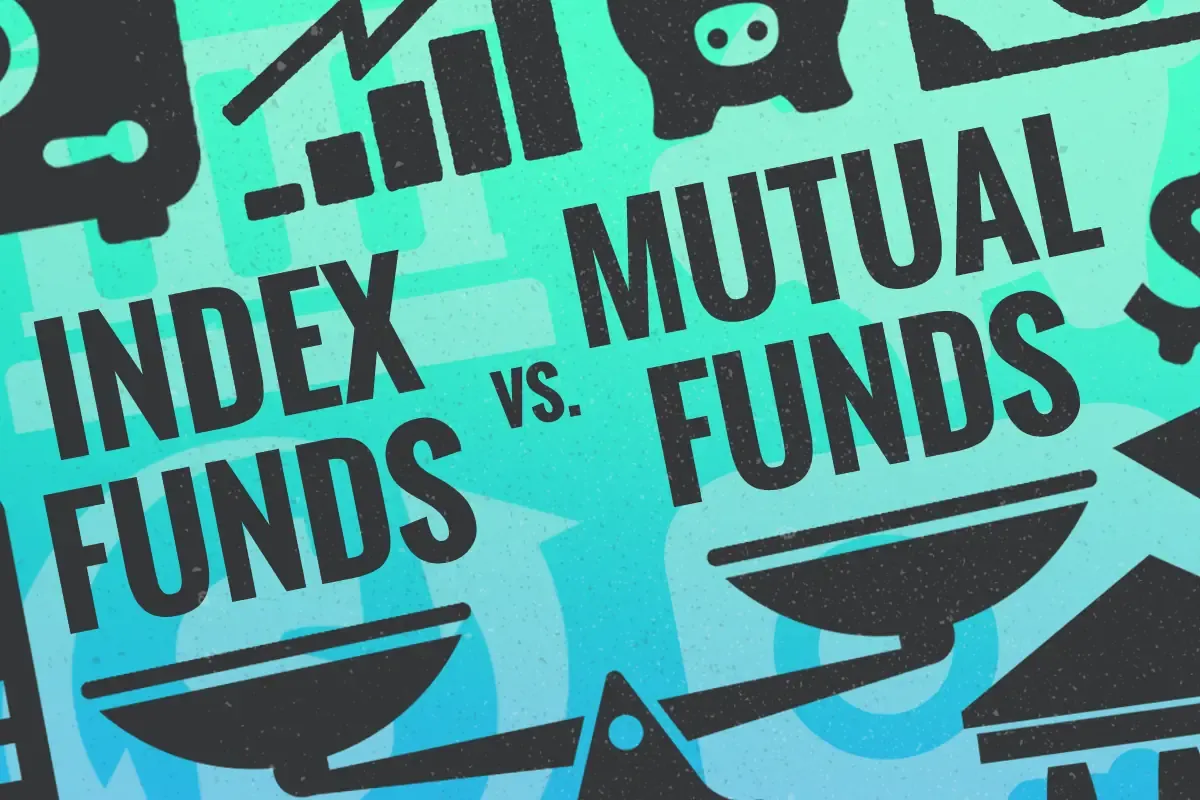Index Funds Vs. Mutual Funds
When stepping into the world of investing, the variety of alternatives might be intimidating. Let's begin with the fundamentals.
There are two categories of funds: those managed by experts who actively seek to outperform the market and those that aim to reflect the performance of a certain market index.
These two types of funds are significantly different in their approach, cost structure, level of risk, and possible returns despite having many similarities.
This essay will examine various variations, elucidate each one's distinctive qualities, and assist you in determining which one best meets your financial objectives.
What Are Index Funds And Mutual Funds?
Mutual funds and indexes are both types of financial instruments, although they function differently. Index funds are a kind of mutual fund or exchange-traded fund (ETF) whose portfolio is built to replicate or follow a market index, such as the S&P 500 as one illustration. Contrarily, mutual funds are investment vehicles run by qualified money managers who distribute the fund's assets and make an effort to generate capital gains or income for the fund's investors based on their analysis, projections, and opinions in an effort to outperform the index most closely related to their investing strategy.
Comparing Index Fund and Mutual Fund Returns
In the past, actively managed mutual funds have frequently lagged behind index funds over the long run. Even while certain mutual funds have a proven track record of success, it's vital to remember that past success does not ensure future success. Additionally, many investors are drawn to index funds because of their reliable, market-beating returns.
The majority of actively managed mutual funds have historically had difficulty regularly outperforming their index fund competitors. 55% to 87% of actively managed funds that invest in S&P 500 companies failed to surpass that benchmark in any given year from 2010 to 2021. 51% or so of large-cap stock funds in 2022 failed to outperform the S&P 500 index.
This is not to say that there are no active funds that perform well or that they cannot be a successful component of an investing plan. Some succeed in doing this, but it's important to keep in mind that past success doesn't guarantee future success.
The research, however, tends to support the notion that low-cost index funds are frequently a more sensible option for most investors, particularly those with a longer investment horizon. They provide greater market exposure, lower prices, and returns that, although not exceeding the market, should come close to matching it.
Keep in mind that your financial objectives, risk tolerance, and time horizon for investing should all be taken into consideration when choosing between mutual and index funds.
Differences In Liquidity Between Index Funds And Mutual Funds
Being somewhat liquid means that you can buy or sell shares on any business day for both mutual funds and index funds. While index funds (if set up as an ETF) can be traded all day long like stocks, transactions in mutual funds are only performed at the end of the trading day at the net asset value (NAV) price.
Real-World Evaluations Of Mutual Funds And Index Funds
Think about two hypothetical investors: Investor A, who selected a high-performing mutual fund, and Investor B, who invested in a low-cost index fund that tracks the S&P 500. Over time, Investor A consistently matches the market and keeps more profits due to reduced expenses, even while Investor B occasionally has higher returns.
Benefits and Drawbacks of Index Fund Investing
The advantages of broad diversification, cheaper expenses, and reliable returns are provided by index funds. They lack the potential for better returns than the market since they are made to match the market, not to outperform it.
Benefits and Drawbacks of Mutual Fund Investing
Professional management and above-market return possibilities are offered by mutual funds. Their performance is reliant on the fund manager's aptitude, and they are associated with greater fees and conceivably higher tax obligations.
Which One Fits Your Portfolio Best?
Mutual funds and index funds each have their place in a portfolio of investments. Knowing the variations will enable you to select the fund type or combination that best suits your investment objectives. Before making important investing decisions, think about speaking with a financial advisor.
Making more educated investing selections may be possible by differentiating between index and mutual funds and comprehending their distinctive characteristics. Index funds, which are renowned for their cost-effectiveness and passive management, provide consistent returns that follow the market.
Contrarily, mutual funds demand expert management and have higher fees, but potentially providing larger returns. Your investment decision should be in line with your financial objectives, level of risk tolerance, and investment know-how.
I advised people to obtain registered professional financial counsel before making significant investment decisions. Whatever path you choose, making a well-informed choice can have a big impact on the financial stability of your investment portfolio and the creation of long-term wealth.
The matka is a free open site that assists you with getting finance info online from the World. You will get information related to Share Price, Jobs, Education, Money, Business Finance, Trading, Investing and many more.

